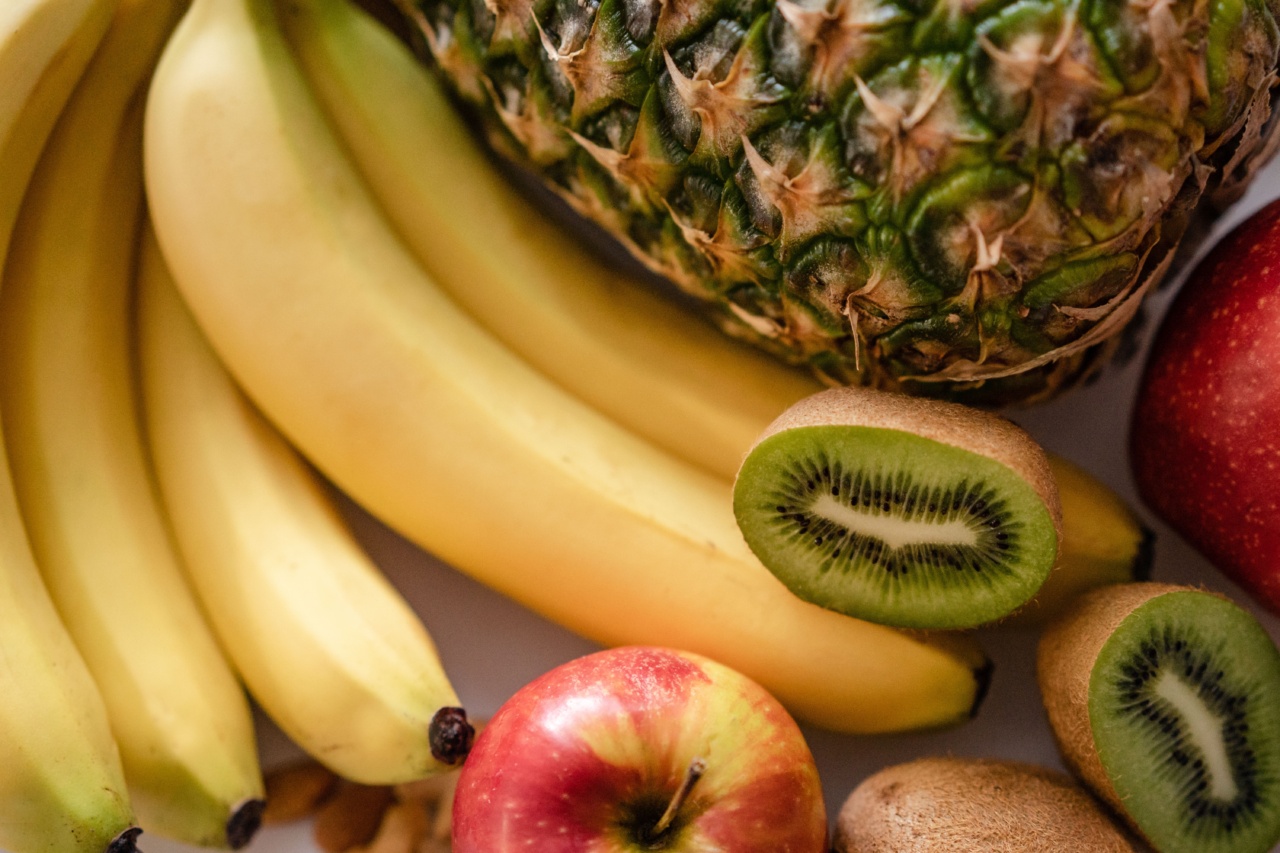When it comes to weight loss, many people are confused about what to eat. There are many different diets and fads that promise quick results, but the truth is that there is no one-size-fits-all approach to weight loss.
However, one food that has gained a lot of popularity in recent years for its potential weight loss benefits is the banana.
Nutritional Profile of Bananas
Before we discuss whether or not bananas are good for weight loss, let’s first take a look at the nutritional profile of bananas:.
- Calories: One medium banana contains around 105 calories
- Carbs: Bananas are high in carbohydrates, with around 27 grams per medium-sized banana
- Fiber: Bananas are a good source of fiber, with around 3 grams per medium-sized banana
- Fat: Bananas are almost fat-free, with less than 1 gram of fat per medium-sized banana
- Protein: Bananas are low in protein, with around 1 gram per medium-sized banana
- Vitamins and minerals: Bananas are a good source of vitamin C, vitamin B6, and potassium
Bananas and Weight Loss
So, are bananas good for weight loss? The answer is yes and no. On one hand, bananas are a healthy food that can be included in a balanced diet. However, simply eating bananas alone is not likely to lead to significant weight loss.
That being said, there are a few ways in which bananas may help with weight loss:.
Bananas provide energy
Bananas are a good source of carbohydrates, which are the body’s main source of energy. By providing energy, bananas can help to fuel your workouts and other physical activities, which can in turn help with weight loss.
Bananas are filling
Bananas are a good source of fiber, which can help to promote feelings of fullness and keep you satisfied between meals. By keeping you feeling full, bananas may help you to eat fewer calories overall, which can contribute to weight loss.
Bananas are low in calories
One medium-sized banana contains around 105 calories, which is relatively low compared to other snack foods. By choosing a banana instead of a high-calorie snack, you can reduce your overall calorie intake and potentially aid in weight loss.
Bananas may help to regulate blood sugar levels
Bananas are a good source of carbohydrates that are released slowly into the bloodstream, which can help to regulate blood sugar levels.
By keeping blood sugar levels stable, bananas may help to prevent cravings and overeating, which can contribute to weight loss.
Caveats
While bananas can be a healthy addition to a weight loss diet, there are a few caveats to keep in mind:.
Portion size
While bananas are low in calories, they still contain carbohydrates and sugars that can contribute to weight gain if eaten in excess. To avoid overdoing it, it’s important to stick to moderate portion sizes when eating bananas.
Preparation methods
How you prepare your bananas can also impact their calorie and nutrient content. For example, frying bananas in oil or using them in high-sugar recipes can negate some of their potential weight loss benefits.
Individual differences
Finally, it’s important to remember that everyone’s body is different, and what works for one person may not work for another. While some people may find that bananas help them lose weight, others may not notice any difference.
Conclusion
So, is banana good for weight loss? The answer is that bananas can be a healthy addition to a weight loss diet, but they are not a magic bullet.
Bananas provide energy, fiber, and important nutrients, but they should be eaten in moderation as part of a balanced diet. If you’re looking to lose weight, it’s important to focus on overall calorie balance, regular exercise, and a varied diet that includes a variety of healthy foods, including bananas.



























